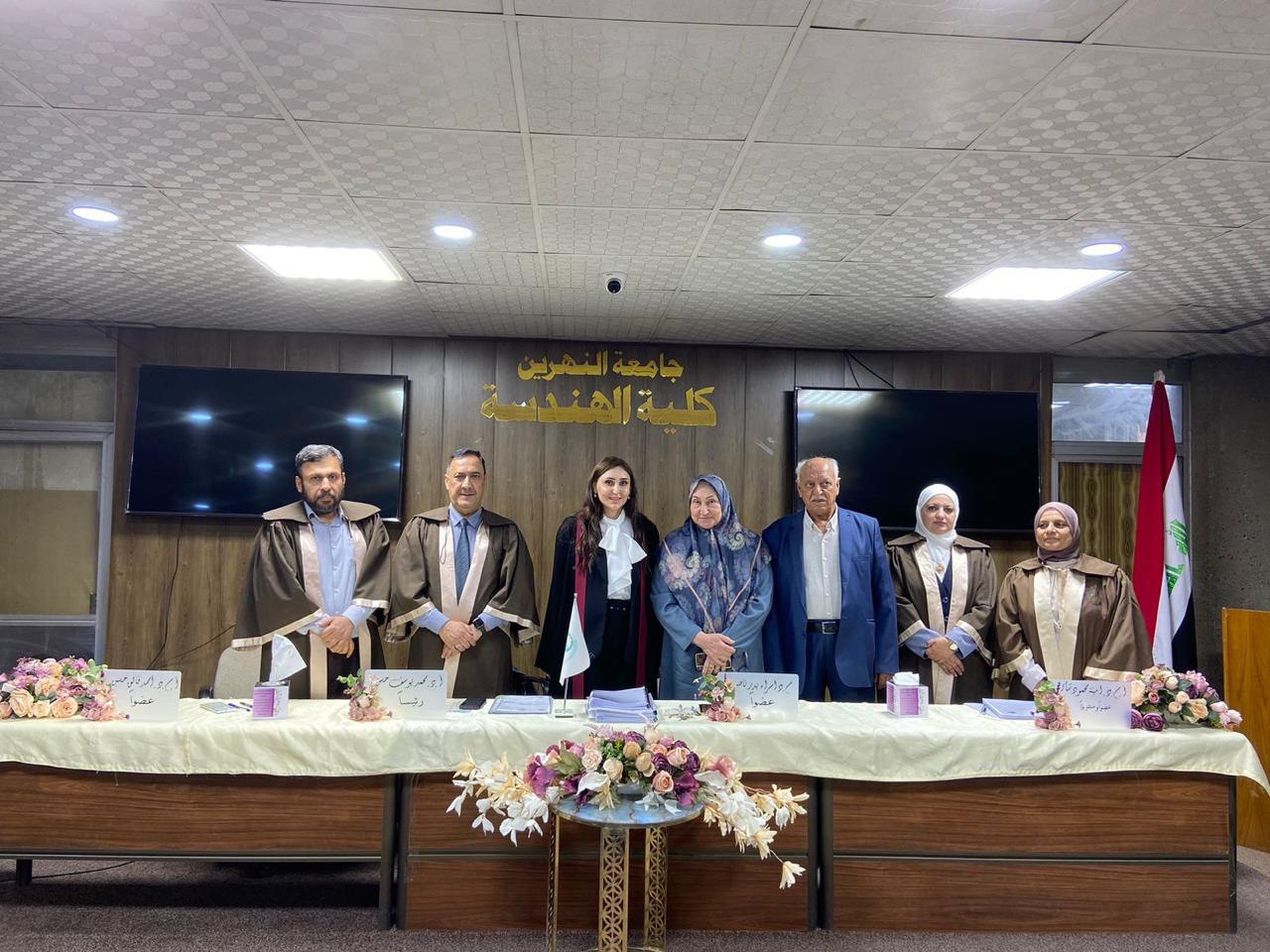Discussion of the Master’s thesis by the student (Hala Sabah Mutashar) from the Department of Electronic and Communications Engineering
Visitors:
20568728 Views
Done By:
Electronic and Communications Engineering Department
Post Date: 2024-03-18
Last Browse: 2025-04-07
